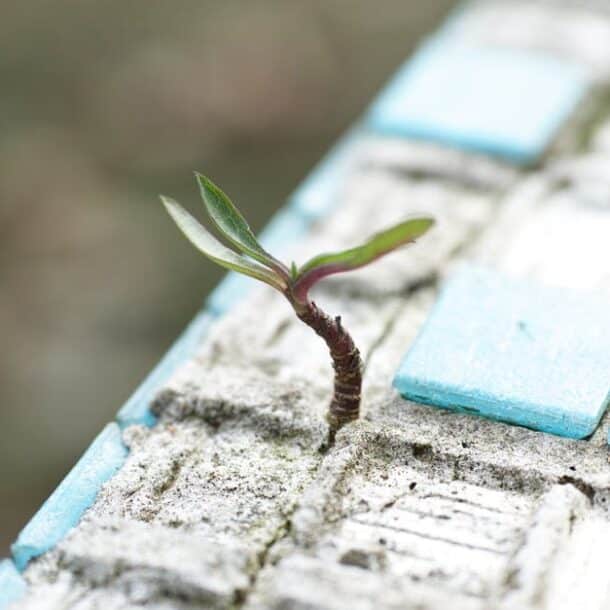
Recovery Will Energize Your Life
Substance use can quickly become all-encompassing, negatively affecting your physical and mental well-being as well as your sleep cycle. Sleep disturbances and inconsistent amounts of sleep can contribute to many problems in the body’s systems, such as digestion, brain function, and behaviors. Chronic sleep deprivation can contribute to high blood pressure, stroke, depression, and a weakened immune system.
Starting recovery from substance use disorder (SUD) is a process that requires a lot of courage and power. Once you complete the beginning stages of recovery, you may begin to notice how much more energy and motivation you have. This can be a great time to start thinking of larger life goals and prioritizing health and mental wellness.
How Recovery Will Change Your Life
Continuing to use drugs or alcohol despite the negative effects it has on the mind, body, and spirit will put you more at risk for overdose and addiction. Receiving treatment for SUD will allow you to turn your life around and become an advocate for your own health and wellness.
Not only could recovering from SUD save your life, but it can also change it for the better. Here are some ways recovery will benefit your life:
- Improved sleep: This plays a huge role in the amount of energy you feel in recovery. Being under the influence of drugs or alcohol will significantly affect energy levels and sleep patterns.
- Regained control of your life: When you become dependent on a substance, your brain chemistry and patterns shift. This makes you unable to quit using a substance without the presence of challenging, uncomfortable, and potentially medically dangerous withdrawal symptoms. Entering recovery will give you a sense of agency and power over your behavior.
- More funds: The purchasing and use of substances can create a huge dent in your bank account. Behaviors caused by the influence of substances could cause an even bigger one.
- Improved long-term health: Continuous drug or alcohol consumption will cause organs to undergo consistent damage and trauma. Stopping use will allow the body to heal itself and grow stronger.
- Better relationships with loved ones: SUD can often lead to isolation, causing personal and close relationships to suffer. Loved ones will be pleased to see your progress in recovery and can even play a massive role in supporting your decision to remain sober.
Starting Your New Life in Recovery
The newfound energy and confidence discovered in recovery can be put to good use through sober activities, support group meetings, and exploring new hobbies. Keeping focused on finding new passions and healing in recovery can prevent cravings and keep you focused on your success in your new life.
Below are some ways you can energize your life in recovery.
Find New Hobbies
By exploring new or old hobbies like sports, hiking, fishing, or even restoring cars, you can begin to build a sense of purpose in your new life. Completing a project or progressing a skill will instill a feeling of accomplishment. Substances like drugs and alcohol rewire the reward circuits in the brain, but finding new hobbies can be a way to reactivate these centers.
Meet New People
Making new sober connections in recovery by participating in support groups or meeting people through hobbies can help build a strong support system. These people, along with loved ones, will be able to encourage and motivate you to stay strong in your efforts toward your new and fulfilling life.
Set Goals for Yourself
Making achievable milestones for yourself in recovery can keep you on track and focused on the new life you are building. Even setting small, daily goals such as brushing your teeth and making your bed can begin your day on a positive and productive path.
Exercise
Taking a walk, joining a gym, or even starting to practice yoga will be a great way to expend the extra energy you may experience in recovery. Addiction will have negative effects on your mind and body. Once you begin recovery, light to moderate exercise will begin to heal your body from the damage and release endorphins, promoting positive mental health as well.
Eat Well
Creating healthy and fulfilling meals will provide your body with the vitamins and nutrients it needs to function properly and promote healing in recovery. Making yourself nutritious food can also give you a sense of accomplishment. Sharing that meal with others will build companionship and allow you to enjoy activities you may not have been able to participate in during active addiction.
Change Is Good
Sometimes, the monotony of everyday life and boredom can contribute to the urge to drink or use drugs. Embracing change in recovery will allow for the freedom to try new things and fight boredom so that cravings do not appear as often. While change can be intimidating, it is important to remember that these adjustments are centered around health, wellness, and mental well-being.
Exploring this new life in recovery can remind you of what this beautiful world has to offer. Oftentimes, addiction can cause isolation. Change will allow you to move forward with your life and experience new, exciting adventures.
SUD is a very serious mental health disorder that could cost individuals their relationships, health, and even their lives. If you or a loved one is suffering from the effects of addiction, receiving treatment for this dangerous disorder could just save your life. Reaching recovery requires bravery and hard work, but this challenge will reward you with positive thinking, more confidence, and a healthy body to carry you through your life.
Healing Pines Recovery is a residential treatment center located in Elizabeth, Colorado whose rehab program is thoughtfully designed to help men confidently work through the complicated emotions that can come with recovery. We will accept our clients where they are, and through open conversation and understanding, lead them toward their goals in recovery by utilizing evidence-based, experiential, and holistic approaches to addiction.
Call Healing Pines Recovery today at 720-575-2621 to learn more about our personalized treatment programs.
Paul Leafstedt
Paul was born and raised in the beautiful state of Colorado. He went to college in California at CAL Poly Pomona, majoring in Mechanical Engineering. Being a person in recovery and always finding fulfillment in helping others succeed, Paul co-founded a treatment center in California with 4 other partners. Paul came back to Colorado to continue his journey in the field of addiction, and to share his vision for Healing Pines Recovery. “Colorado is such a magical place for me, its natural beauty and peace lend itself for the perfect environment to connect with yourself and others. Healing Pines is different, it’s real, you can feel it. What you see is what you get here. This is a safe place to dig deep and be vulnerable, to re-discover yourself, what the world has to offer and what you have to offer the world.”Begin Your Journey & Escape Addiction
The first step can be the hardest. Fill out the form or call us at (720) 575-2621. You will be connected with a Healing Pines Recovery specialist who can answer your questions and help you get started.
Let Us Help You
Speak to Someone Right Now







